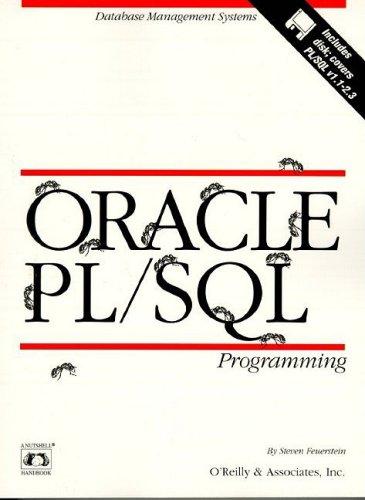Question
Solve it using C++. You will build a simple binary tree data structure from some arbitrary input and also the crawler function that will locate
Solve it using C++.
You will build a simple binary tree data structure from some arbitrary input and also the crawler function that will locate data
inside of it. 1. Build a class Node. It should have a value that it stores and also links to its parent and children (if they exist). Build
getters and setters for it (e.g. parent node, child node(s)). 2. Write a method build_tree which takes an array of data (e.g. [1, 7, 4,
23, 8, 9, 4, 3, 5, 7, 9, 67, 6345, 324]) and turns it into a binary tree full of Node objects appropriately placed. Start by assuming
the array you get is sorted. 3. Now refactor your build_tree to handle data that isnt presorted and cannot be easily sorted prior to
building the tree. Youll need to figure out how to add a node for each of the possible cases (e.g. if its a leaf versus in the middle
somewhere). 4. Write a simple script that runs build_tree so you can test it out. 5. Build a method breadth_first_search which
takes a target value and returns the node at which it is located using the breadth first search technique.
[Tip: You will want to use an array acting as a queue to keep track of all the child nodes that you have yet to search and to add
new ones to the list. If the target node value is not located, return nil.]
6. Build a method depth_first_search which returns the node at which the target value is located
using the depth first search technique. Use an array acting as a stack to do this. 7. Next, build a new method dfs_rec which runs
a depth first search as before but this time,
instead of using a stack, make this method recursive.
[Tip: 1. You can think of the `dfs_rec` method as a little robot that crawls down the tree, checking if a node is the correct node
and spawning other little robots to keep searching the tree. No robot is allowed to turn on, though, until all the robots to its left have finished their task. 2. The method will need to
take in both the target value and the current node to compare against. ]
Step by Step Solution
There are 3 Steps involved in it
Step: 1

Get Instant Access to Expert-Tailored Solutions
See step-by-step solutions with expert insights and AI powered tools for academic success
Step: 2

Step: 3

Ace Your Homework with AI
Get the answers you need in no time with our AI-driven, step-by-step assistance
Get Started


